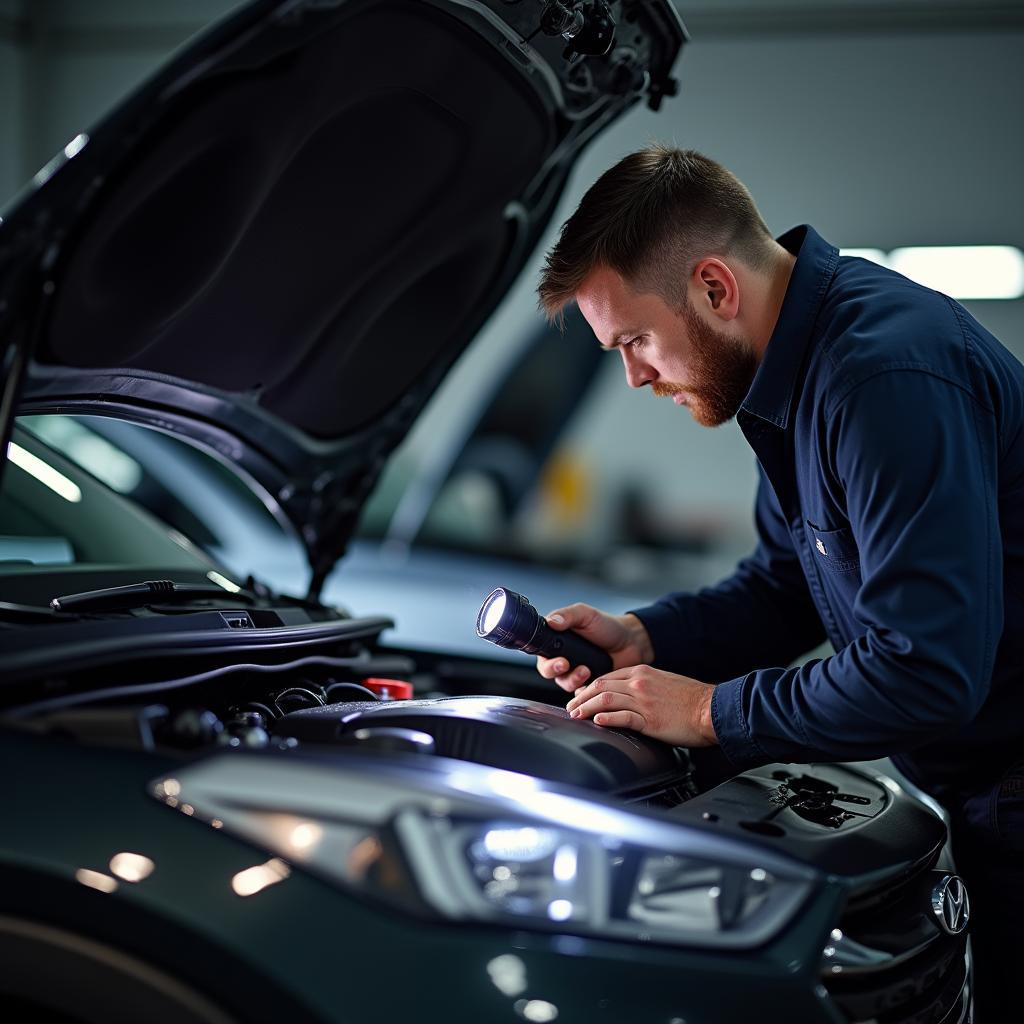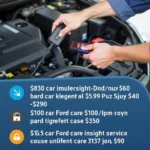Maintaining your Hyundai in top condition involves a specific set of car servicing steps, ensuring its longevity, performance, and your safety on the road. Whether you own a sleek Sonata, a sporty Veloster, or a family-friendly Santa Fe, understanding these steps empowers you to keep your Hyundai running smoothly for years to come.
Understanding the Importance of Regular Hyundai Servicing
Regular servicing goes beyond just oil changes; it’s about a comprehensive check-up for your car. Just like we humans need regular medical checkups, our cars require periodic attention from qualified technicians to identify and rectify potential issues before they escalate. This proactive approach not only saves you from costly repairs down the line but also ensures your safety and a smoother driving experience.
Decoding Hyundai’s Service Intervals
Hyundai provides a detailed service schedule in your owner’s manual, outlining the recommended intervals for various maintenance tasks. Generally, Hyundai recommends a service every 7,500 miles or 12 months, whichever comes first. However, certain driving conditions like frequent short trips, heavy traffic, or dusty environments might necessitate more frequent servicing. Always refer to your owner’s manual or consult a certified Hyundai service center for personalized recommendations.
Steps Involved in a Typical Hyundai Car Service
A typical Hyundai car service involves a series of checks and maintenance procedures performed by qualified technicians. Here’s a breakdown of the key steps:
1. Preliminary Inspection and Fluid Level Checks
The first step involves a visual inspection of your car’s exterior and interior, checking for any visible damage, tire condition, and lights functionality. Next, the technician checks vital fluid levels like engine oil, coolant, brake fluid, power steering fluid, and windshield washer fluid, topping them up as required.
2. Oil and Filter Change
This crucial step involves draining the old engine oil and replacing it with fresh, high-quality oil that meets Hyundai’s specifications. The oil filter is also replaced to remove contaminants and ensure optimal engine performance.
3. Air Filter Inspection/Replacement
The air filter prevents dust, debris, and other contaminants from entering the engine. The technician inspects the air filter’s condition and replaces it if it’s clogged or dirty.
hyundai i20 new car first service
4. Brake Inspection and Service
This crucial safety check involves inspecting the brake pads, rotors, calipers, and brake lines for wear and tear. The technician may recommend brake pad replacement, rotor resurfacing, or brake fluid flushing depending on the inspection findings.
5. Battery Check
The battery’s voltage and charging system are checked to ensure optimal performance. The technician cleans the battery terminals and may recommend a replacement if the battery is nearing the end of its life.
6. Tire Rotation and Pressure Check
Rotating the tires ensures even wear and tear, maximizing their lifespan. The technician also checks and adjusts the tire pressure to the recommended levels.
hyundai car servicing in chandigarh
7. Electronic System Diagnostics
Modern Hyundais come equipped with sophisticated electronic systems. The technician connects a diagnostic tool to the car’s onboard computer to check for any error codes or malfunctions in the engine, transmission, airbags, or other electronic systems.
8. Additional Checks and Services
Depending on your car’s mileage and service history, the technician may also inspect and service other components like the spark plugs, fuel system, suspension, steering system, and exhaust system.
hyundai car service mumbai maharashtra
Choosing the Right Service Provider for Your Hyundai
Entrusting your Hyundai to a qualified and experienced service provider is crucial for its well-being. While independent garages might offer lower prices, opting for a certified Hyundai service center provides numerous benefits:
- Specialized Expertise: Hyundai technicians undergo rigorous training and possess in-depth knowledge of your car’s specific make and model.
- Genuine Parts: Hyundai service centers use genuine Hyundai parts, ensuring optimal performance, compatibility, and warranty coverage.
- Advanced Diagnostic Tools: Hyundai service centers have access to the latest diagnostic tools and software, enabling them to accurately diagnose and resolve any issues.
- Warranty Protection: Servicing your Hyundai at an authorized service center ensures that your car’s warranty remains valid.
Conclusion: Prioritizing Your Hyundai’s Health
Regular servicing is an investment, not an expense. By following the recommended service intervals and entrusting your Hyundai to qualified professionals, you can prolong its lifespan, ensure optimal performance, and enjoy a safer and more enjoyable driving experience.


